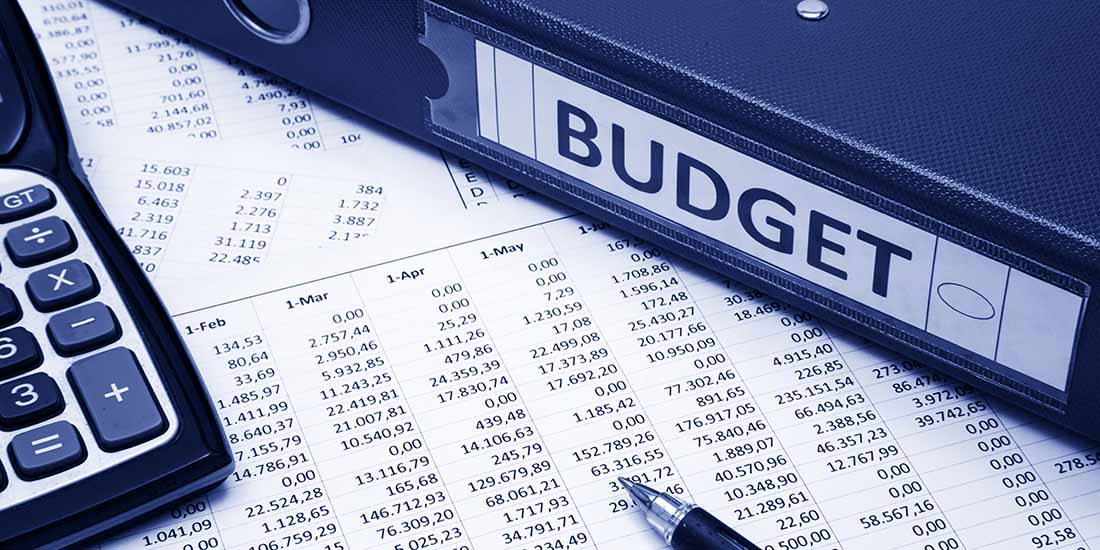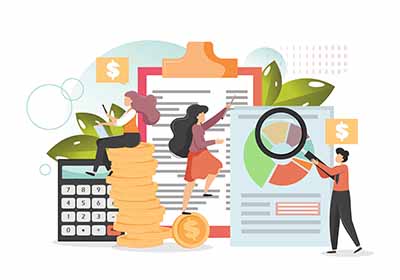 Contact
About Us
Articles
Home
Contact
About Us
Articles
Home

You might not be this kind of person, but I’m pretty sure you know someone who is: They are the people who are prompt and consistent in paying their bills each month. Maybe they even take advantage of automatic withdrawals from their checking or savings account so that they are never late with a payment. These individuals are delighted when their paycheck covers the bills that are due, and there is money left over for a night or two on the town and to buy that overpriced skirt or pair of jeans that are “to die for.”
Their live-for-today attitude works well for them. That is, until the annual auto insurance invoice shows up in the mailbox. Or perhaps it’s the real estate taxes that are due twice a year. Suddenly there isn’t nearly enough money left over from the paycheck to cover these rather substantial bills. And the most unfortunate news will come when their 10-year-old car begins its death rattle or the furnace starts coughing up black smoke.
Where did these good and intelligent people jump the tracks?
We financial types like to say that a budget is the road map to the future. Depending on who you say that to today, however, you will get a bemused look from them in return. So, now we tell them that a budget is like using Waze to make sure you get to your destination.
Whatever analogy you prefer to use, the importance of budgeting your income cannot be overstated. Without one, it’s almost inevitable that you will end up like those people in the previous example who were unprepared for life’s “big-ticket” items. And we haven’t even touched on that critical event waiting for everyone in the distant (or not so distant) future: retirement.
Perhaps here is a good time to remind everyone of the sage advice that Mr. Micawber gave to young David Copperfield:
"‘My other piece of advice, Copperfield,’ said Mr. Micawber, ‘you know. Annual income twenty pounds, annual expenditure nineteen six, result happiness. Annual income twenty pounds, annual expenditure twenty pounds naught and six, result misery."
Those words, taken from a Charles Dickens novel of 1850, are no less fitting today than they were 170 years ago. But spending less than you earn in today’s complex world is more challenging, if not impossible, without the help of a budget. After all, 19th-century London did not have free one-day delivery from Amazon or $5 lattes at the local Starbucks to provide constant temptations.
Most people save whatever is left over after they pay their bills and buy all those fun things. But that doesn’t work because there will always be something you “need” before you feel comfortable setting some funds aside.
By paying yourself first, you change the priority to saving first, then paying bills and buying things. Before you even pay the utilities, you put money into savings and investments such as:

Some financial professionals use the arbitrary figure of 10% as the amount of your paycheck to set aside. Still, you can start conservatively at a lower rate and gradually move it up once you get into the swing of things.
You can use a pen and notebook, an Excel spreadsheet or a budgeting app to create your budget, but the steps will be the same:
Calculate your income: Include any income from other sources such as alimony, child support, Social Security, rental income, dividends and interest. Subtract the amount you are paying to yourself, and this is the amount you have to budget.
Determine your expenses: Keep in mind that you might not be billed monthly for some expenses, but you must still set aside money for them each month. For example, an annual homeowners insurance bill of $900 must go into the budget as $75 ($900/12). Here is a sample of the expenses you should consider:
Make adjustments: If your expenses exceed your income, you have two options: either you make more money, or you spend less. Typically, people find it easier to reduce spending. So, look back at your budget and determine what can be reduced or eliminated. It might seem ruthless at first, but you’ll be thankful later. If, on the other hand, you’re bringing in more than you’re spending, you have the enviable task of deciding where to save the extra funds.
Now that you have set up your budget successfully, you need to have a picture of your financial position right now. A personal financial statement is a document, usually in the form of a spreadsheet, that shows you where you stand financially.
The statement is simply a breakdown of your assets and liabilities to show your net worth. It helps track your wealth and goals, and it comes in handy if you apply for credit.
Start by listing your assets, which should include real estate, vehicles, checking or savings accounts, retirement account balances and expensive jewelry or antiques.
Next, list your liabilities, which are usually personal loans, mortgage, student loans and unpaid taxes. If you are married, you can have a joint financial statement listing what you own and owe as a couple.
To arrive at your net worth, subtract your liabilities from your assets. Your net worth signifies what you will have in cash if you sold all your assets and paid off all your debts. Of course, it’s better to have a positive net worth. However, if you have a negative net worth right now, you should remember that your net worth can fluctuate over time as your assets increase, and your liabilities are reduced.
Creating a budget is an essential part of managing your money. Unfortunately, too many people are reluctant to take this step. Instead of viewing it in terms of restrictions, headaches, and hassles, think of it as your ticket to financial freedom — because that is precisely what it could be!
Alliance America is an insurance and financial services company. Our financial professionals can assist you in maximizing your retirement resources and achieving your future goals. We have access to an array of products and services, all focused on helping you enjoy the retirement lifestyle you want and deserve. You can request a no-cost, no-obligation consultation by calling (833) 219-6884 today.


